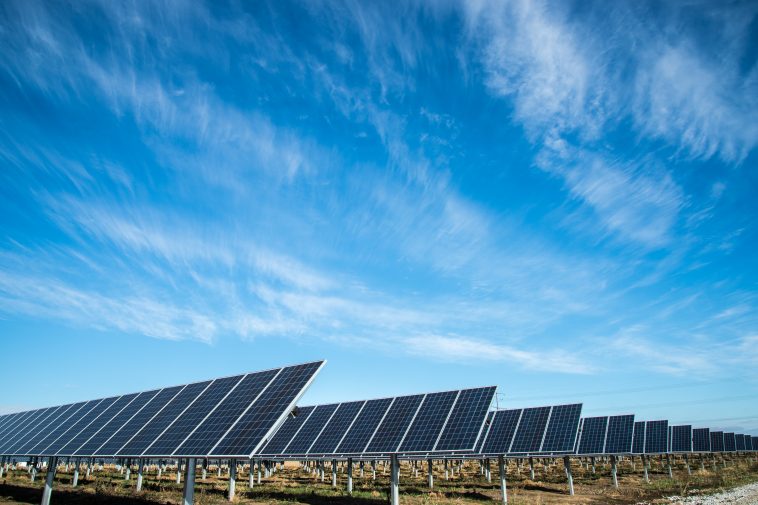The West African region is witnessing the emergence of a pipeline of innovative renewable energy projects, contributing to the advancement of sustainable solutions. To showcase these developments, the upcoming MSGBC Oil, Gas & Power conference, organized by Energy Capital & Power and taking place in Mauritania, will specifically highlight the region’s top five renewable energy projects
Ada Foah Wave Energy Project in Ghana
Ghana’s significant wave energy potential, estimated at 7,215 MW, has attracted the attention of renewable energy developers. One notable project in this field is the Ada Foah Wave Energy Project, which was recently revived through a collaborative effort between engineering firm Power China Huadong Engineering Corporation.
American energy infrastructure company TC Energy and wave energy developer Seabased.
The initiative aims to establish a wave energy park in the Gulf of Guinea, leveraging ecologically friendly technologies. The envisioned wave energy park has the potential to generate 1,000 MW of power, contributing significantly to Ghana’s renewable energy capacity.
The Ada Foah Wave Energy Project has set ambitious investment goals, with an expected total investment of up to $2 billion. The project has already secured over $10 million in funding. To ensure the safety and quality of the wave energy technology, the Ghana Standards Authority will play a crucial role in overseeing the project’s implementation.
The anticipated cost of electricity generated by the wave energy park is estimated to average between three and four cents per kilowatt-hour. This cost is significantly lower than traditional energy sources like hydropower and thermal power, typically costing around 10 cents per kilowatt-hour. By providing a more affordable energy option, the wave energy project aims to enhance energy accessibility and affordability for the people of Ghana.
Wave2O Project in Cabo Verde
The Wave2O program has been introduced to assist Cabo Verde in its ambition to transition to 50% renewable energy by 2030. The program’s focal point is the Wave2O Project, which involves the development of a reverse-osmosis desalination plant powered entirely by wave energy.
The Wave2O technology uses a proprietary seawater desalination process that integrates wave energy converters from the technology company Resolute Marine with onshore desalination and electricity generation facilities. This innovative approach aims to leverage the power of ocean waves to generate clean energy and provide sustainable desalinated water.
With the support of the African Development Bank, the pilot project in Cape Verde will evaluate the feasibility and effectiveness of the Wave2O technology. Successful implementation of the pilot will pave the way for the deployment of a commercial-scale project.
Thorium Exploration in Nigeria
Wildsky Resources, a Canadian mining company, embarked on an exploration program in Nigeria in 2022, specifically focusing on Niobium-Thorium exploration licenses. Niobium-Thorium is considered a cleaner alternative to uranium for nuclear power generation.
During the exploration phase, the company conducted mapping and surveys, identifying significant Niobium-Thorium anomalies in the area. Wildsky Resources plans to drill shallow holes to gather further data and insights as part of its ongoing investigation.
Thorium, one of the elements of interest, offers certain advantages over uranium. It is more abundant in nature, generates less waste, and possesses limited potential for use in nuclear weapons. Notably, China has made substantial investments in Thorium-based technologies, and India has successfully utilized them in their third-generation reactors.
Typha Fuel and Construction Project in Senegal and Mauritania
The Typha Combustible Construction Afrique de l’Ouest/West Africa project, as outlined in the provided link, is an innovative initiative that utilizes the invasive plant species known as typha. The project aims to harness the potential of typha as both a biofuel and a construction material in West Africa to reduce greenhouse gas emissions and promote sustainable practices in the energy and construction sectors.
The project encompasses various components, including the management of typha resources, the production of biofuel from typha, the development of typha-based building materials, and the promotion of awareness and training initiatives. By effectively managing the invasion of typha, creating favorable market conditions for biofuel derived from typha, and integrating typha-based materials into construction practices, the project aims to mitigate climate change and enhance local capacities for a greener and more sustainable future.
Biogas Program in Senegal
The National Biogas Program in Senegal, aims to address the high demand for energy services, particularly cooking fuel, which is predominantly met through firewood and charcoal. The program aims to mitigate the negative impacts on health and the environment caused by these traditional fuel sources. To achieve this, the Senegalese government is actively seeking alternative solutions, focusing on promoting domestic biogas production as a sustainable and clean energy source for households.
The National Biogas Program in Senegal primarily focuses on constructing biodigesters for rural households, providing them with a sustainable fuel source. The program also wants to make a market for biodigesters that can make money and make organic manure to help farmers produce more food. Its goals include:Installing thousands of biogas units,Making it easier for people to get credit,for people to work together for sustainable growth.





